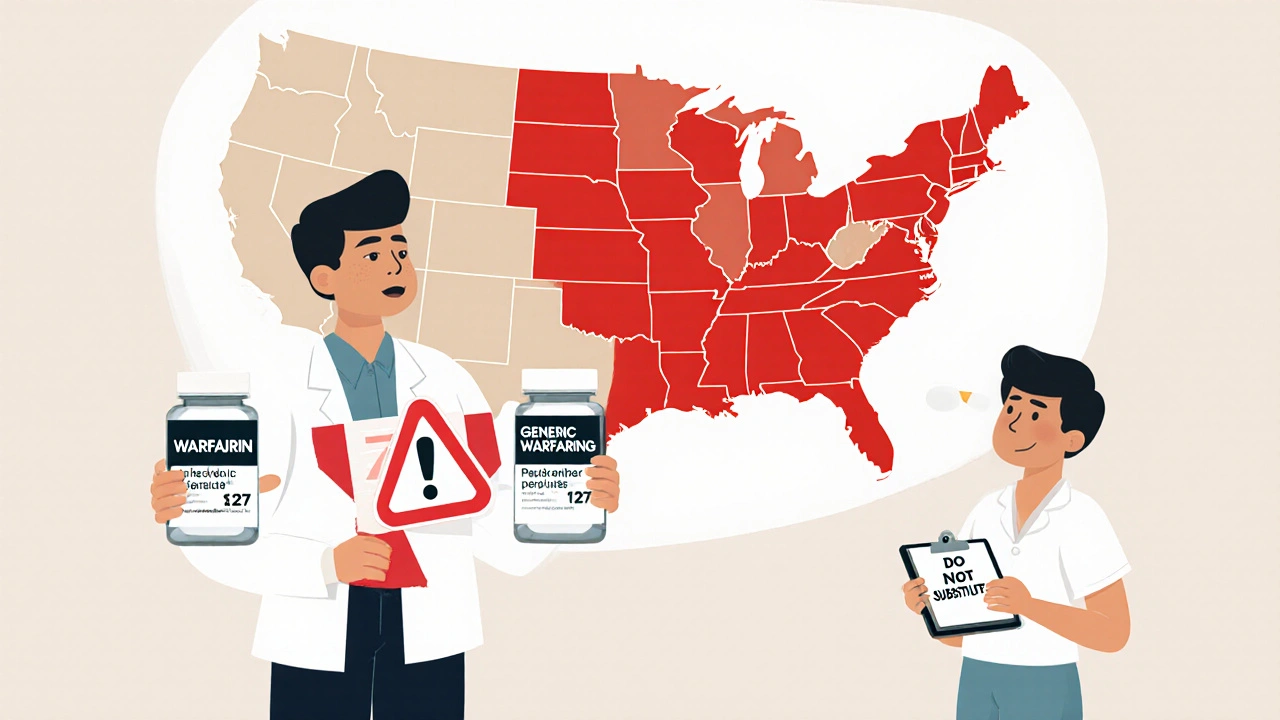Generic Drug Substitution: What You Need to Know Before Swapping Prescriptions
When you pick up a prescription, the pharmacist might hand you a different pill than what your doctor wrote — that’s generic drug substitution, the practice of replacing a brand-name drug with a chemically identical generic version. Also known as generic switching, it’s common, legal, and often encouraged to cut costs. But here’s the catch: not all generics are created equal when it comes to your health.
For most drugs, switching to a generic works fine. But for medications with a narrow therapeutic index, a small range between the effective dose and the toxic dose, even tiny differences in how the body absorbs the drug can cause serious problems. Think epilepsy drugs like lamotrigine or carbamazepine — a slight change in bioavailability might trigger a seizure. Or blood thinners like warfarin — a small shift in absorption could lead to dangerous bleeding or clotting. These aren’t theoretical risks. Real patients have been hospitalized because of unmonitored generic switches.
Manufacturing quality matters too. generic medications, lower-cost versions of brand-name drugs approved by the FDA are held to the same standards — in theory. But reports of tablet capping, inconsistent dosing, and contamination aren’t rare. Some generics are made in overseas facilities with less oversight. If you’re on a chronic condition, your body gets used to a specific formulation. Swap it out, and you might feel off — fatigue, dizziness, or worsening symptoms — even if lab tests look normal.
Not all substitutions are bad. For antibiotics, statins, or blood pressure meds, generics often work just as well. But you should never assume it’s safe without asking. Talk to your doctor before any switch. Ask if your drug has a narrow therapeutic index. Check if your pharmacy uses the same generic brand each time. Keep a log of how you feel after a switch. If something changes, speak up. Your health isn’t a cost-saving experiment.
What you’ll find below are real stories and hard facts about when generic substitution works — and when it could hurt you. From antiseizure drugs to statins, from manufacturing flaws to insurance-driven switches, these posts give you the tools to protect yourself. No fluff. No jargon. Just what you need to know before the pharmacist hands you a new pill.
Twenty-seven states have special laws restricting generic substitution for narrow therapeutic index (NTI) drugs like warfarin and levothyroxine. Learn which states block swaps, why they do it, and what you should do if you take one of these critical medications.
Nov, 20 2025

